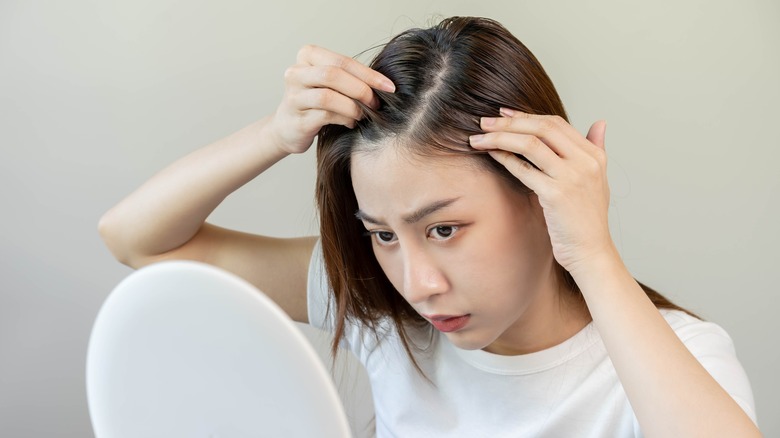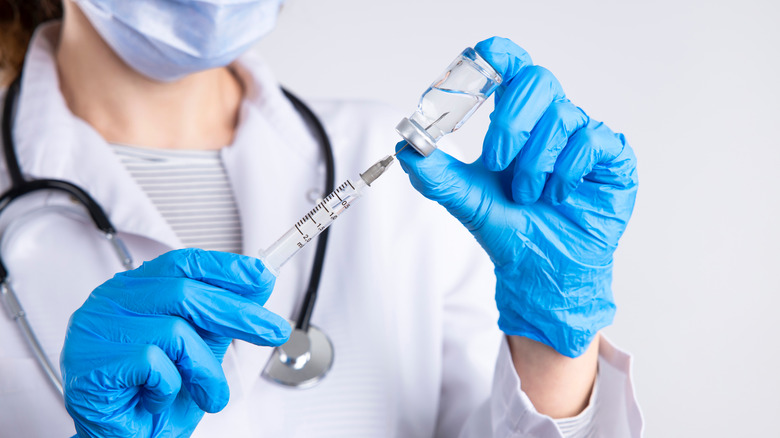Could Cortisone Shots Be The Secret To Curing Hair Loss?
Hair loss can happen to anyone, but it can especially destroy a women's self-confidence. After all, according to HuffPost, history has long equated a woman's flowing tresses with femininity and beauty, and it would appear that people today are no different. In fact, the average woman will spend a staggering $50,000 on hair products and treatments throughout her lifetime.
Hair loss returned to the forefront of discussion when Jada Pinkett-Smith revealed on her Facebook Watch show, "Red Table Talk," that she had been dealing with alopecia for several years. In fact, she even revealed "shaking in fear" throughout that particular episode.
Pinkett-Smith recalls the moment she discovered her hair falling out in clumps as "terrifying" to her (via Pop Sugar). However, she revealed receiving steroid injections for her hair loss seemed to be helping her hair loss condition. But what exactly are the injections she's been receiving for her condition?
Steroids for hair loss
Cortisone injections — which you might also hear referred to as corticosteroids or simply steroids — are the artificial version of the hormone cortisol (via WebMD). Once injected, they can quickly relieve inflammation in that particular area.
According to the American Academy of Dermatology, alopecia areata is an autoimmune disease in which your body's immune system attacks its own hair follicle which eventually leads hair to begin falling out, leaving bald patches.
There are no cures for this condition (via the American Academy of Dermatology). However, cortisone injections given about every four to six weeks can help lost hair regrow by suppressing the inflammatory response, as per the National Alopecia Areata Foundation. It further notes that the drug minoxidil usually won't help alopecia, but it could augment the effects of cortisone injections when given at the same time. A psoriasis treatment called anthralin might help as well. Steroids can also be applied to the skin in ointments, creams, foams, or lotions, according to alopecia experts.


